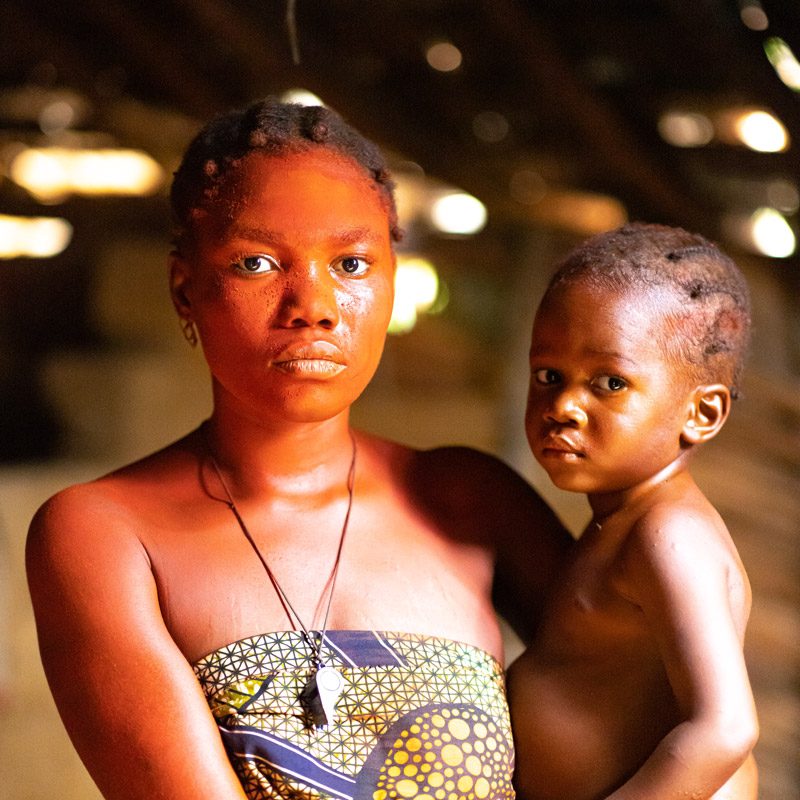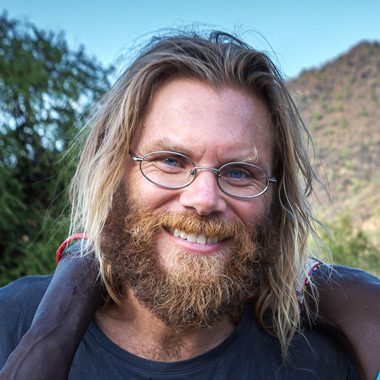After being mothers for the first time, the young women of the Ntombe and Ngombe tribes (native from the region of Ecuador in the D. R. of Congo) become Walé (women who breastfeed) and begin a life of seclusion in which they will spend several years dedicating themselves exclusively to the care of their children.
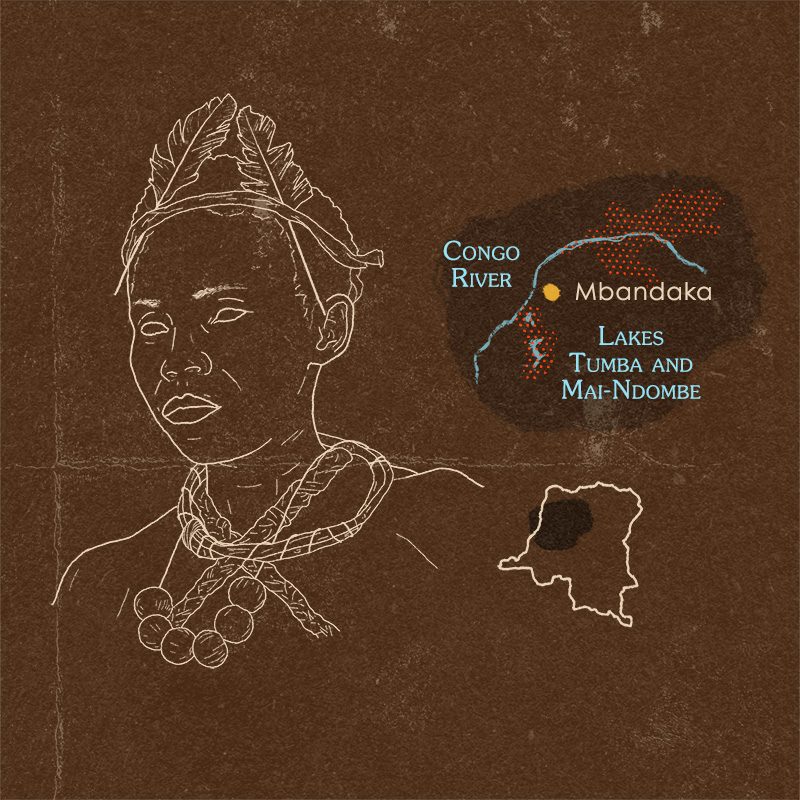
Location of the Ntomba and Ngombe peoples in the territory of the D.R. of the Congo.
When a woman has a baby and becomes a Walé, she leaves her husband and moves to her mother's hut, where she will remain confined. There, she will carry out her initiation as a mother and as a woman. A few months later, the rules become softer. They can come and go, as long as they are accompanied by their 'bodyguards' (women of the family, whether they are sisters, aunts, young men or girls), since it is necessary that there are witnesses who watch over Walé at all times, especially if they are relate to some man.
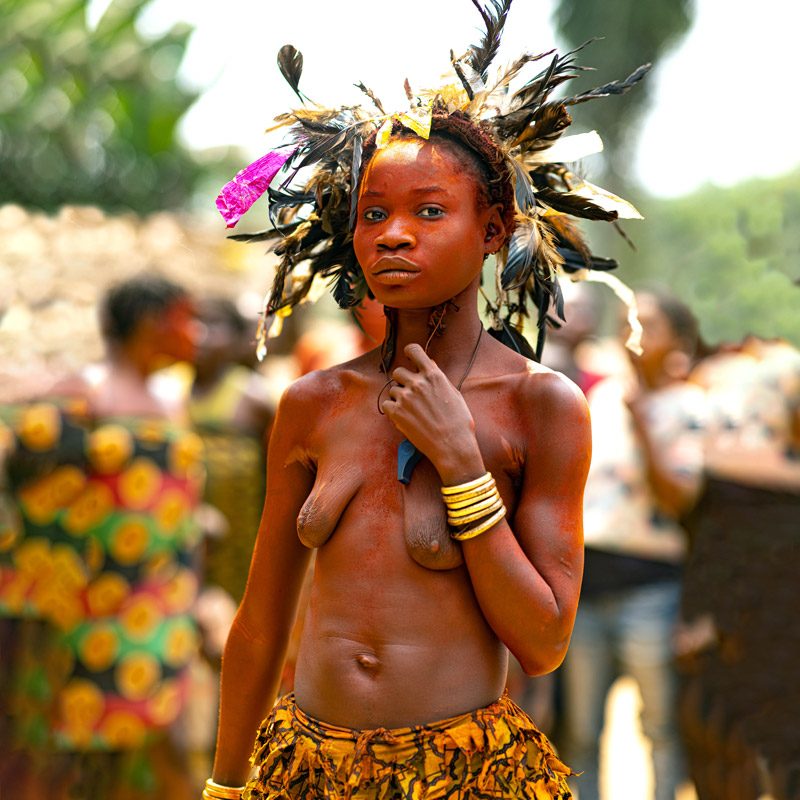
Meeting with Ntomba Walé women during a trip to the DR Congo.
The Walé are subject to many taboos: they cannot have sexual relations, nor speak alone with any man, nor work, nor leave the village, nor serve food, nor cook... The goal is to keep anything that might be contaminated by male sperm away from the Walé, as the pygmies believe that it poisons breast milk.
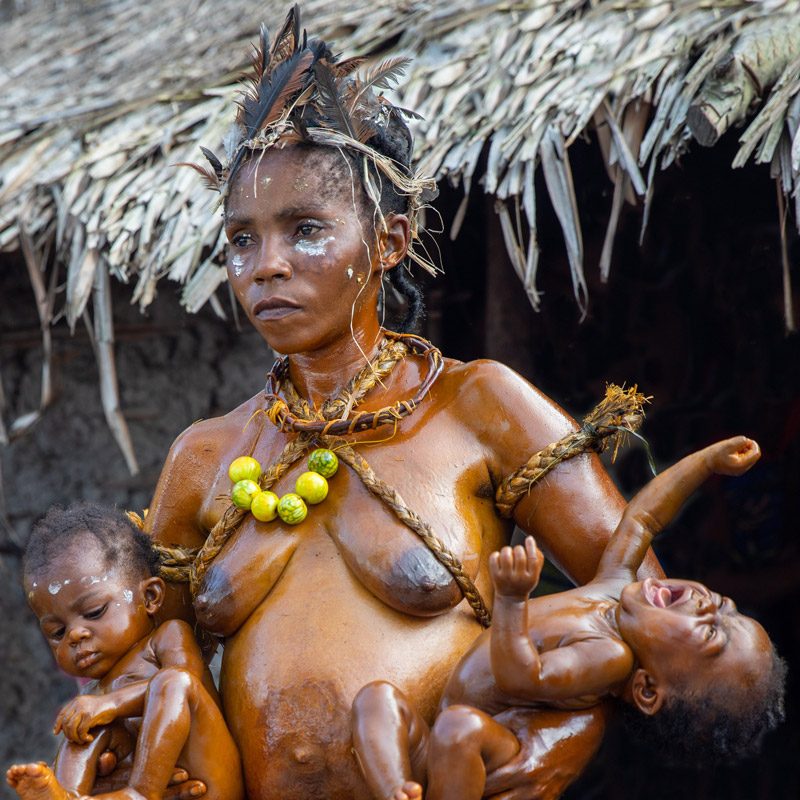
Ngombe woman holding her twin babies during the Walé ritual.
Do you want to meet the Walé of the D.R. of the Congo?
Meet the Walé women on our trips to the D.R. of the Congo. Click here to see our upcoming trips to the D. R. of the Congo.
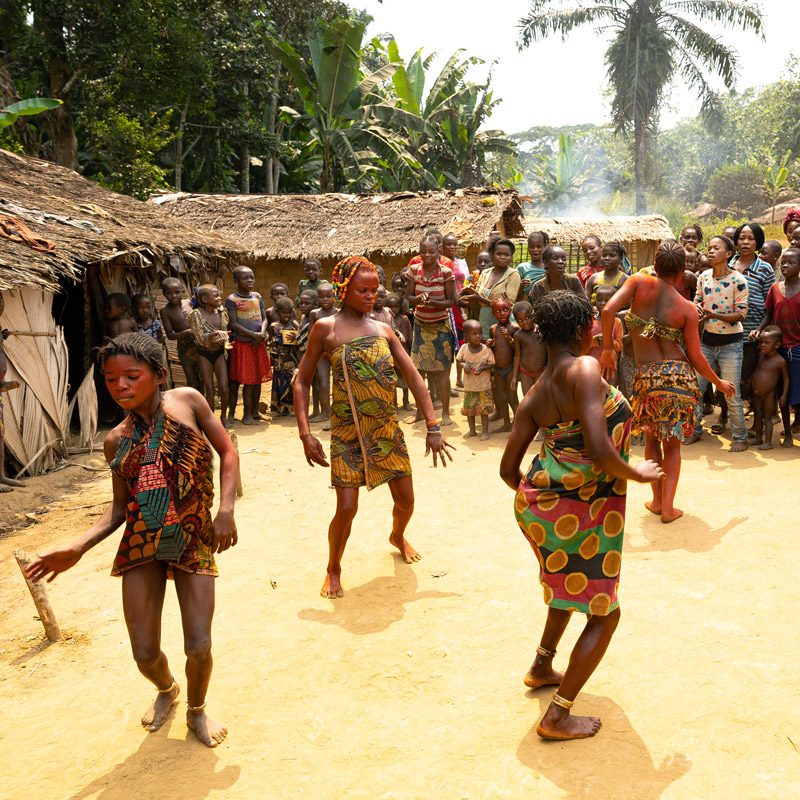
Attending to the Ntomba's Walé ritual during a trip to the D.R. Congo.
The honor of the family and the clan is at stake. The more scrupulous the Walé is respecting these taboos, the more prestige she obtains for the clan to which she belongs. Then, she will be treated like a queen: red body paint applied to her face and body, copper bracelets, a fly swatter, a tipoy (palanquin)... Her 'bodyguards' work for her: they prepare her food, take care of her safety and also her health. In this way, the Walé can focus on being a mother and raising her baby. The food that is served to her and her son is of the best quality, not only to preserve their health, but above all because a Walé must be plump, fertile and seductive. She lives half-naked to arouse the desire of men, which increases her merit when she complies with the sexual taboo and rejects them all.
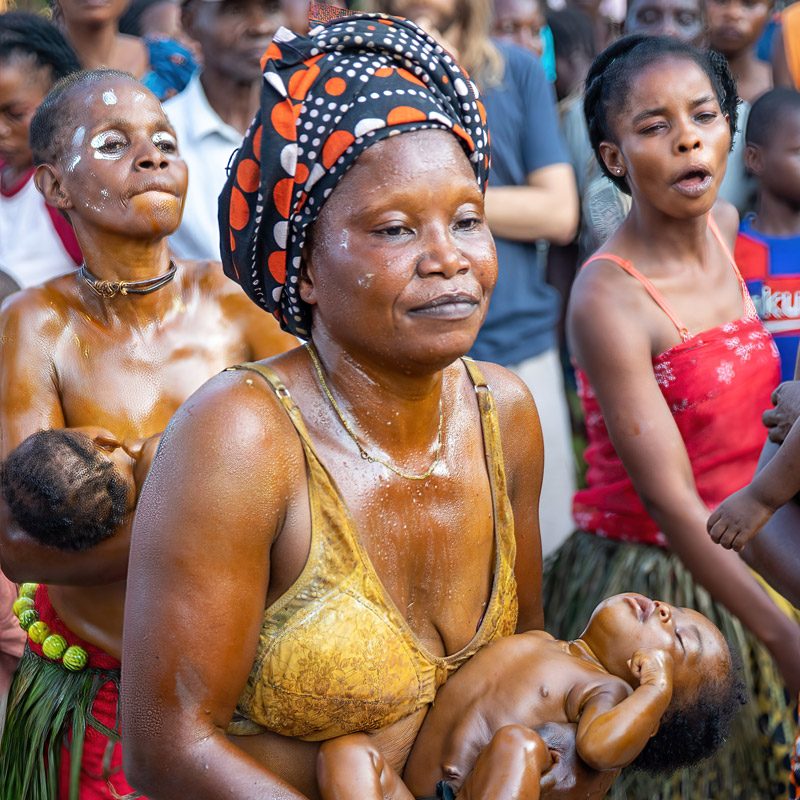
Attending to the Ngombe's Walé ritual during a trip to the D.R. Congo.
The Walé's husband must cover all her needs and raise the money to pay for the end of confinement ceremony. During this celebration, the Walé receives the 'suitcase', a dowry in which she will find everything she needs for her new life: personal belongings, shoes, clothes... The country's economic problems are forcing the pygmies, who are hunter-gatherers, to live in the city for long periods in search of work. For this reason, the confinements are longer and longer, which encourages polygamy. Sometimes the husband does not return and it is the family or a new suitor who bears the cost of the ceremony.
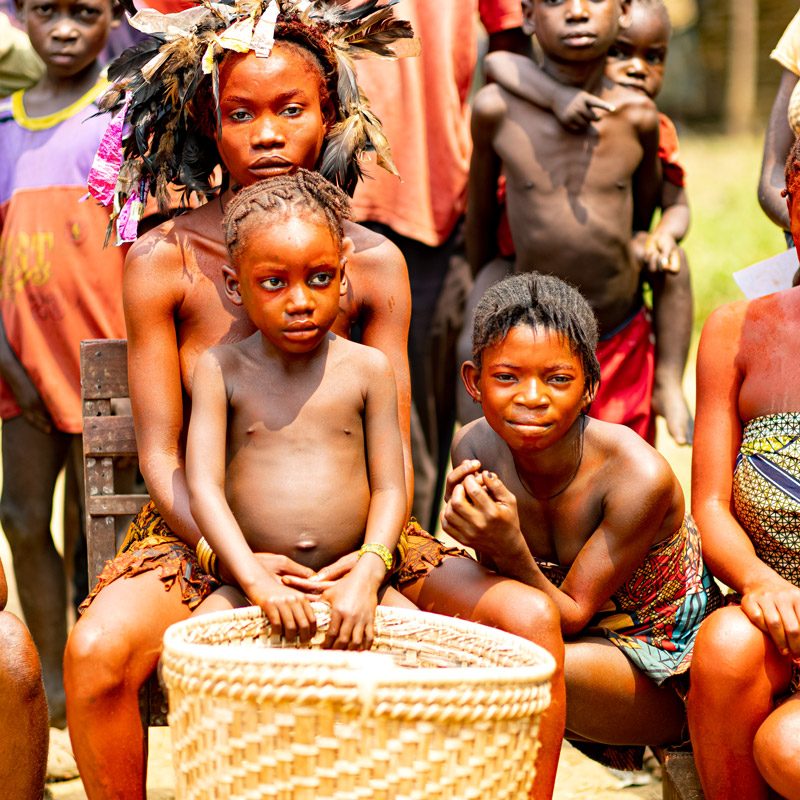
Ritual of ending seclusion
The Walé ritual is always early in the afternoon on a Sunday. For three hours, the Walé talks about her, through song and dance; sometimes alone, other times accompanied. She glorifies herself, boasts of her merits. At the end of the ceremony, she is placed on a platform that, connected to a system of pulleys and vines, lifts her into the air several meters above the ground. Finally, the Walé is once again free and the taboos are lifted. After the ceremony, she will resume her normal life, leaving the town to go to work in the fields with the rest of the women.
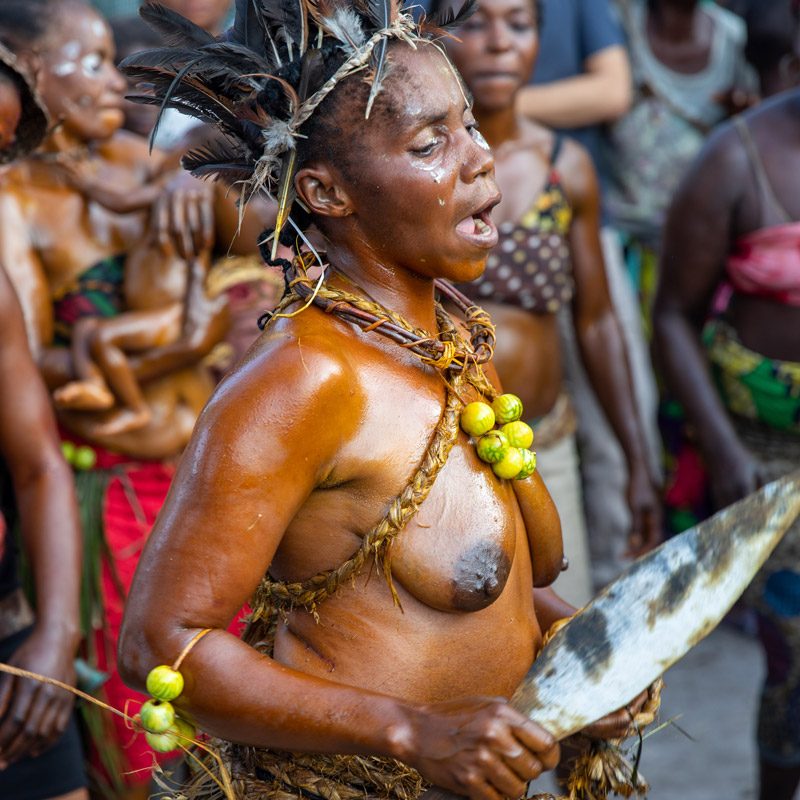
Attending to the Ngombe's Walé ritual during a trip to the D.R. Congo.
© Photos by Aníbal Bueno and Xavi de las Heras taken to Walé women during a trip to the D.R. Congo.
You can learn more about the Ntomba and the Ngombe in www.101lasttribes.com
